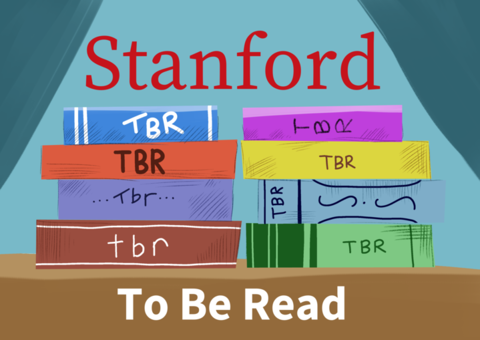In her column “Stanford TBR” (to be read), Cate Burtner recommends books that would resonate with the Stanford community — a reading list compiled for outside the classroom.
While I love contemporary author Zadie Smith’s novels, it is her essays where she shines the most. The writing of Smith’s brilliant essay collection “Intimations” was bookended by two tragedies: the onset of the COVID-19 pandemic and the murder of George Floyd. The book was certainly timely in July 2020, but I’d argue it is just as relevant today. “Intimations” is a thought-provoking collection of meditations on life in the 21st century, and conveys its ideas efficiently in a mere 97 pages. I truly believe this book should be all the rage among busy and politically-active college students, as most of us at Stanford are.
The collection as a whole is philosophical, literary and political. In “Something To Do,” Smith muses about the act of writing, representing the art form as childlike while also having “potential political efficacy.” I found this essay thought-provoking in the most literal sense: Smith writes and posits in a way that spurs the imagination and causes the reader to make allusions in their head to other texts and philosophies. When she writes that “art takes time and divides it up as art sees fit,” I was reminded of Stephen King’s memoir in which he discusses art as a support system for life. This essay might have prompted readers to also think about how the art we create can take on a life of its own, à la Frankenstein’s monster. With the rise of contemporary AI as a tool for creation, readers may think of Smith’s essay as raising the question of whether we are responsible for the actions of our creations.
Essays throughout “Intimations” lend themselves greatly to intertextuality, both between essays in the collection and outside of it. Even among her complex political commentary, it’s clear that Smith has an ease with language that can only belong to a fiction writer. The essays were poetic in their brevity and economical in their efficiency.
The essay “Screengrabs” piqued my interest because it poignantly zooms in on everyday people during a time of intense isolation, highlighting many of the issues that permeated life in the year 2020. This is evident even just through the essays’ sub-section titles. For instance, “A Character in a Wheelchair in the Vestibule” brings to the forefront different perspectives on the pandemic and how the lockdown pushed different people to the brink of survival in differing ways.
Other essays focus on our connections with people, calling attention to just how lonely and isolating 2020 was. In “A Woman with a Little Dog,” Smith touches on the idea that people are full of surprises, and that getting to know someone interesting is like opening an endless gift. These essays in particular made me feel all of the feelings: I was commiserating and feeling grateful, drawing conclusions about my own experience during the COVID-19 pandemic and contemplating imagination itself. Smith’s writing manages to feel political and sweeping, as well as immensely personal to her and, in the process, to the reader.
Reading a work from the midst of lockdown led me to question what I would have written during that time; certainly nothing so profoundly connected to the human condition. My admiration for Smith’s work only grew upon seeing her ability to show beauty and make interesting points, particularly about people, during such (and say it with me) an “unprecedented time.”
One might not expect a book of essays to make use of formal literary features, but “Intimations” certainly delivers as a work of literature in addition to being a work of nonfiction. In “The American Exception,” Smith describes an unnamed president using metaphors of war and strategically including the word “bottom line,” to comment on the specific political and capitalistic state of 2020 America.
In “Suffering Like Mel Gibson,” art and time are discussed in a way that is laced with empathy. The essay has been stuck in my head since reading it because of its perspective on children and their use of new technology — a topic on which people like to opine. The essay manages to distinguish between melancholy and suffering in this broader meditation on privilege and positionality. Whether or not readers fully agree with her points, one gains new perspectives from Smith’s writing that allows mind-expanding room for contemplation.
With the official end of the COVID-19 pandemic in May 2023, the evolving Black Lives Matter movement and the fact that it is Black History Month, “Intimations” holds just as much relevance today as it did when it came out in July 2020. A retrospective look back from current readers on the year of 2020 will provide an interesting lens for appreciating these essays. From readers of 2024 to those of the distant future, “Intimations” will provoke thoughtful conversations about that historic moment.
Dear Stanford, I know it’s a busy time in the quarter — but as socially-conscious young people, I strongly recommend you keep “Intimations” by Zadie Smith in your back pocket. It’s short, it’s dense with thought-provoking content, it’s sharp and ultimately just real. Go find yourself a copy — I’m waiting!
